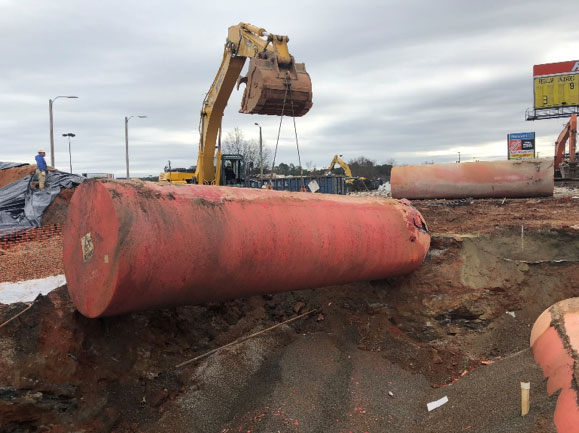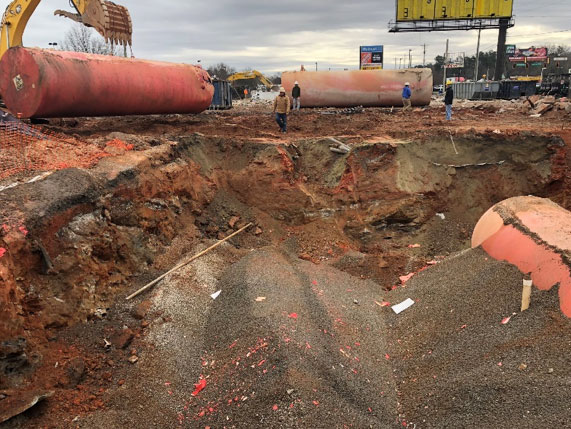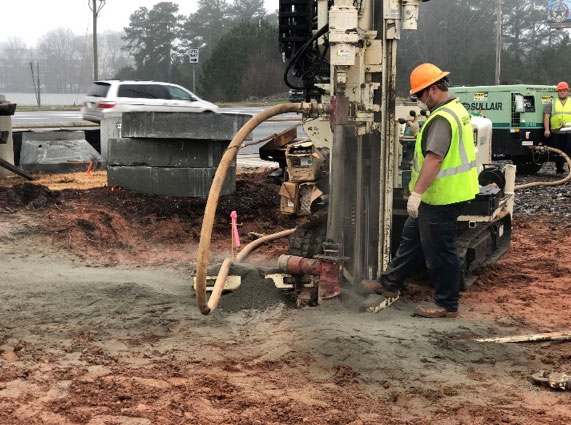


Remediation and storage tank services for a fueling station in Georgia
One of AKT Peerless’ major petroleum retail clients was upgrading their existing fueling station to include a new convenience store and UST system. Additionally, they acquired an adjoining car wash property to expand their new facility. Their fueling station contained the following three double-walled composite steel underground storage tanks (USTs): two (2) 12,000-gallon gasoline tanks and one (1) 12,000-gallon diesel fuel tank. All of the tanks were installed in January 1989. The associated UST piping was a mixture of double-walled fiberglass and single-walled flex construction.
In order to accommodate the client’s plans for a new convenience store and an expanded state-of-the-art UST system, AKT Peerless was retained to perform tank removal and closure activities on the older UST system planned for decommissioning. The closure activities included the appropriate sampling and testing beneath all three tanks, all nine pump dispensers and ~125 feet of system piping. Test results indicated soil contamination within the tank pit which originated from one of the gasoline tanks. In order to compare analytical data to the appropriate soil threshold levels, AKT Peerless performed a sensitive receptor survey to identify public and non-public wells, surface water bodies and preferential pathways in the vicinity of the property. Given that vertical delineation of the contamination was required, it was discovered that the soil impacts extended to apparent competent bedrock which was encountered at depths of 19 to 23 feet. Per state regulations, AKT Peerless was required to drill 20 feet vertically into bedrock in an attempt to intercept groundwater bearing rock fractures. AKT Peerless provided rock drilling oversight using air rotary drilling techniques. A groundwater bearing rock fracture or void was identified at a depth of 41 feet just within the 20-foot rock drilling depth requirement. Several double-cased monitoring wells were installed within the bedrock and the groundwater sampled. The groundwater test results showed gasoline impacts to be well below than the regulatory standards.
Based on the test data, a sensitive receptor survey, and the preparation of a modified UST closure report, AKT Peerless successfully achieved a NFA required status for their client from the state agency. Additionally, the impacted soil in the tank pit met the applicable soil threshold levels which permitted the soil (and pea gravel) to remain on-site and to be placed back into the excavations; therefore, these materials were returned to the tank pit. The modified UST closure activities eliminated the need to perform a corrective action plan and public notice, which saved the client time and significant out-of-pocket costs on this project.